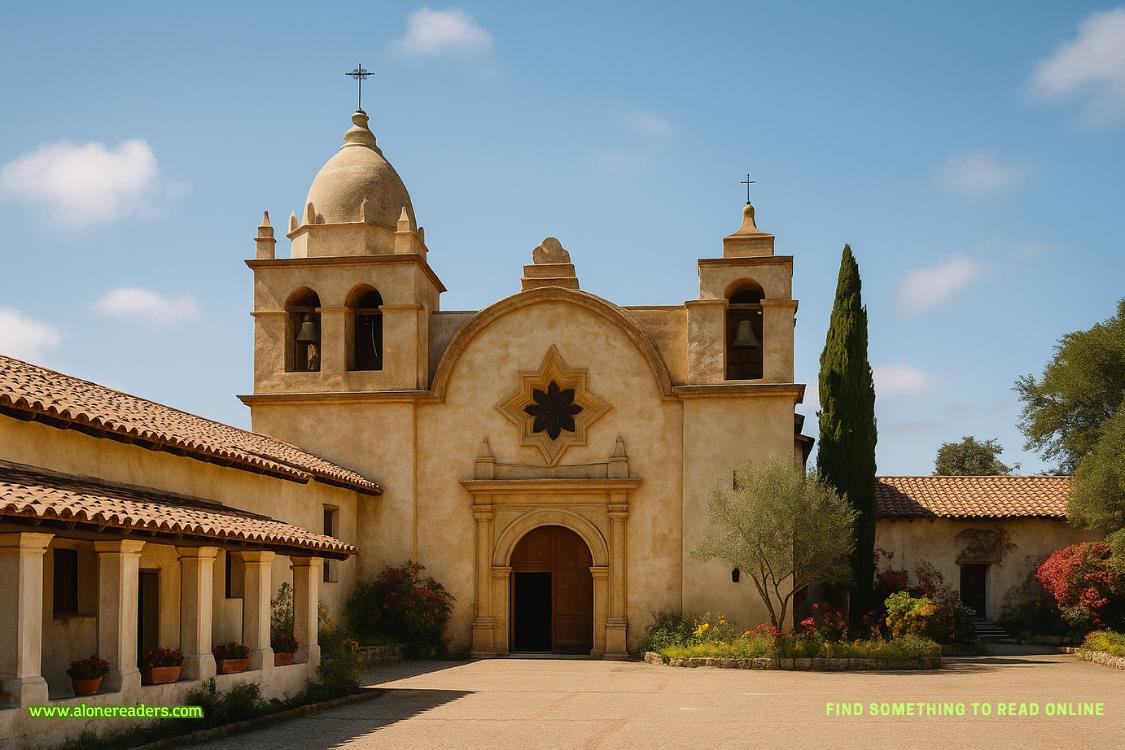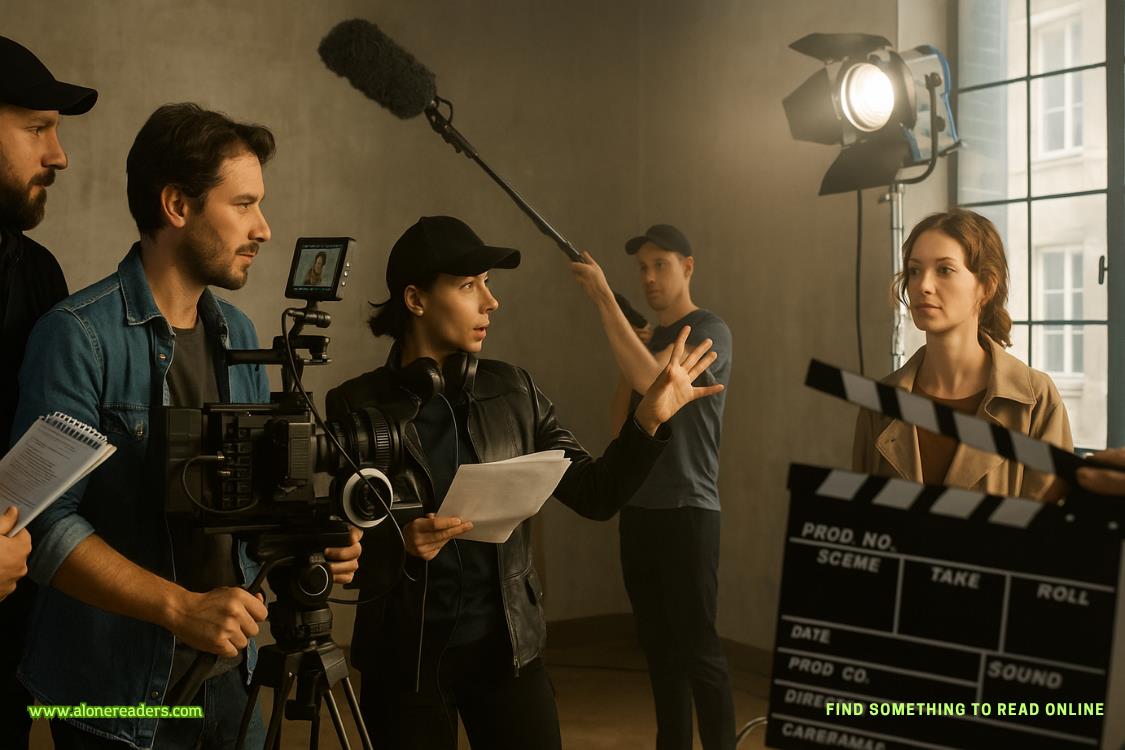Page 41 of The Little Provence Book Shop
The late April sun had warmed them, and halfway there, Monique slipped off her cardigan and tied it around her waist.They passed familiar faces – exchanging nods and smiles andbonjours. Adeline, uncomfortable at first with the idea of Monique coming, began to relax. Perhaps it wasn’t so terrible that Lili thought of Monique as a grandmother figure. She’d understand more as she got older.
‘I can see why you decided to settle here,’ she said to Monique as they crossed the road and turned down the narrow strip of tarmac that led to the school.
Monique looked at her with a smile. ‘I felt as if it were my home; this strange place I’d stumbled across.’
‘Do you ever miss Paris?’
‘Ah, a little. Sometimes. But then Paris is always there when I want. The train is perhaps just four or five hours. I used to go often. Not so much now.Oui, Paris is wonderful. But I am always happy to come home too.’
Adeline nodded. ‘You know, in London, I don’t think I knew anyone’s name,’ she admitted. ‘Not even the people in the same apartment building. I used to say hello to one or two people, but they were strangers really.’
‘It is like that in Paris too. It can be nice, sometimes, to be private. But I am someone who needs connection. People.’
It was an odd thing to say in some ways, Adeline mused, when she considered how Monique had cut herself off from her family. But then, some things fractured a relationship to the point of no return. It wasn’t her place to judge.
They reached the school and joined the stream of parents making their way to the playground, following a series of coloured arrows directing them to where the performance would take place. A set of orange plastic chairs had been laid out in three neat rows to create an audience, leaving the majority of the playground free for the children. Monique andAdeline sat down in the second row and gradually, the other seats filled up. A teacher was hurriedly arranging some paper flowers and marking out an area with chalk, and when she looked up the stone steps, Adeline could see movement and colour inside, but couldn’t make out anything specific. She longed to see what Lili was wearing – her daughter had let something slip about a hat she might be sporting, but otherwise had tried to keep the whole thing a secret.
She turned to Monique and was just about to say something, when the doors opened and another teacher walked out – Adeline recognised her as the head of the school, Maîtresse Fabienne. They’d spoken once or twice in the playground but not in any detail. She was a friendly woman with grey hair tied back in a neat ponytail, and looked to be around sixty years old. The waiting parents settled obediently into silence as if they were pupils at the school themselves; and Adeline wondered if perhaps some of them had been Fabienne’s pupils once.
The head teacher read out a brief introduction – how the children had been studying spring and new life as part of their term’s work and how the dances and songs they had prepared were all about welcoming in the new season.
The doors opened again and the children came skipping out, dressed in colourful T-shirts and each sporting a paper hat, which they’d clearly made themselves. Adeline spotted Lili, whose hat was decorated with pieces of colourful paper cut into the shapes of butterflies and flowers. As her daughter’s eyes met hers, Adeline gave a little grin of pride.
A small speaker began to emit some music and the children joined hands in a circle, skipping around in time and singing along.
It was then that it happened.
Adeline felt something swell inside her as the children began to sing:
‘Vole, vole, vole papillon au-dessus de mon école
Vole, vole, vole papillon au-dessus de ma maison.’
It was a simple song about a butterfly, and yet she felt a shiver run through her body at the tune and the words. Something stirred inside her – a feeling of déjà vu, of having experienced this very moment, this very song, this very sound before.
She was about to say something to Monique, but when she turned to look at her friend, she saw that tears were running freely down her face. Her eyes were fixed on the dancing children, her head nodding slightly to the sound of the music. Yet something was clearly very wrong.
Adeline nudged her. ‘Are you OK?’ she whispered.
Monique looked at her, her face creased with something like grief. ‘Oui,’ she said. ‘Do not worry.’
But it was hard not to.
Once the performance was over and the children had been herded back into the building, the teachers thanked the parents for turning up. The children would change now, but if their parents could wait, they could take their offspring home with them for an early finish for the holidays.
As soon as people began to stand and stretch and mill about, some disappearing beyond the gates to sit in cars or light cigarettes, others clustering in gossipy groups, Adeline walked to the shade of a large tree that stood proud at the back of the outdoor space, its roots clearly so big that they had grown beyond the patch of earth left between the tarmac for it, and had begun to raise the black surface, sending cracks running along its length.
Monique followed her, quiet now. Her tears had gone and she looked a little more like herself.
‘That was so sweet,’ Adeline said. ‘Did you enjoy it?’ She looked at Monique’s face and watched a myriad emotions race across it before Monique seemed to gain control.
She fixed her eyes on Adeline’s. ‘Yes, it was beautiful. Very sweet. And Lili’s hat wasvraimentadorable!’
They were silent for a moment. Adeline leaned on the metal fence that surrounded the playground and looked across at the stone houses, the tiny bend in the road; she could see the spire of the church over the tiled roofs and above it, the wash of blue and white sky. The words came, despite her trying to repress them: ‘Why were you crying?’
Monique shrugged. ‘It was just the song.’
‘The butterfly one.’















